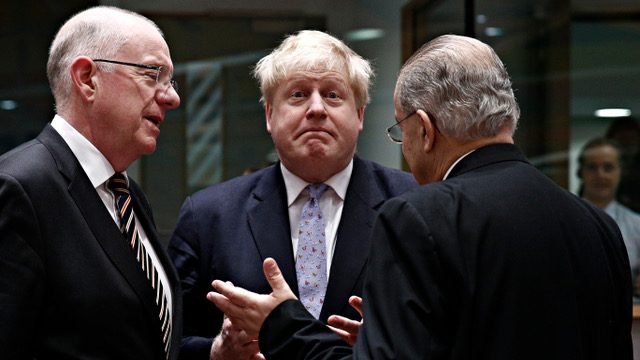The last three weeks have been rough for Boris Johnson and the Conservatives, but it looks like the prime minister has weathered this storm and got away with yet another sleaze scandal.
But, if the Conservative party’s list of troubles gets any longer, this might not be the case forever.
Johnson’s party has been drowned in a wave of sleaze claims since their efforts to save fellow MP Owen Paterson from suspension after the former MP lobbied on behalf of two companies who paid him more than £100,000 a year.
The public and media backlash to the Conservatives’ decision to undermine the Commons disciplinary process was met with a dramatic U-turn, and Paterson’s ultimate resignation.
Two weeks ago in the Commons, a croaky Johnson declared that the decision was “a total mistake… I totally accept that”.
Johnson’s proposal to ban MPs’ work as paid consultants or lobbyists, in light of the events, passed by 297 votes to 0.
The proposal dismayed the head of the sleaze police and leader of the opposition Sir Keir Starmer, whose motion to ban all second jobs for MPs apart from public service roles failed.
This was perhaps due to the hypocritical nature of the proposal, which called into question Starmer’s legal work as an MP before he became leader.
Ultimately, the success of Johnson’s proposal settled the sleaze storm within the House of Commons.
Does the public still trust Boris despite the sleaze?
There seems to have been mounting public disappointment in the Conservative government over the past few weeks.
A YouGov voting intention tracker released on November 17 found that 36 per cent of the public would vote Conservative and 34 per cent Labour in the next general election. This is compared to the week before where both parties were on a par with 35 per cent.
The figures are far lower than the Conservatives’ May heyday, but ultimately show that Labour’s efforts to sway public trust in the government only succeeded for a week.
A YouGov survey conducted by The Times newspaper on November 13 found that 60 per cent of adults thought the Conservatives give the impression of being sleazy and disreputable. But the survey results discovered that 48 per cent of the sample size of 1696 adults thought that Conservative MPs were no more or less corrupt than MPs from other parties.
This suggests that the UK population might intend to vote for the Conservatives merely because, out of the two political party evils, they may prefer to vote for the evil they already know.
Despite the sleaze scandal, High Speed Two (HS2) cuts, the cost-of-living crisis and social-care reforms, Johnson is still the man on top.
Does the Conservative party still have faith in Johnson?
The sleaze scandal has also had a damaging effect on Johnson’s relations within his party.
The damage is partly because, among Conservatives, second jobs are quite common. Therefore, Johnson’s decision to clamp down on the issue has attacked his party more than the opposition.
Last Monday, the vote to reform social care plans for the elderly was not lost, but 19 members of his party were absent on the vote, echoing the dip in his party support.
Serious reform of government does not sit well with Conservatives, let alone Conservative backbenchers who have safe seats.
Johnson’s public spending decisions and net-zero carbon ambitions have riled up Conservative backbenchers, partly because he seemingly refuses to consult with or listen to them.
However, the motion to pass the reform showed that Boris Johnson’s crown of popularity is still balanced on his head, and it has seemed to distract the public discontent away from Tory sleaze.
After all, Johnson’s political style is not something that ever goes smoothly, but which he seems to carry through his demeanour and looks.
But, if the Conservative party’s list of troubles gets any longer, discontent continues within Johnson’s army and the Labour party manages to place one foot in front of the other, the prime minister may soon be bumbling away his crown.
Although, for the time being, it seems like Boris is firmly on his surfboard, riding past the sleaze scandal wave.
Political Editor





